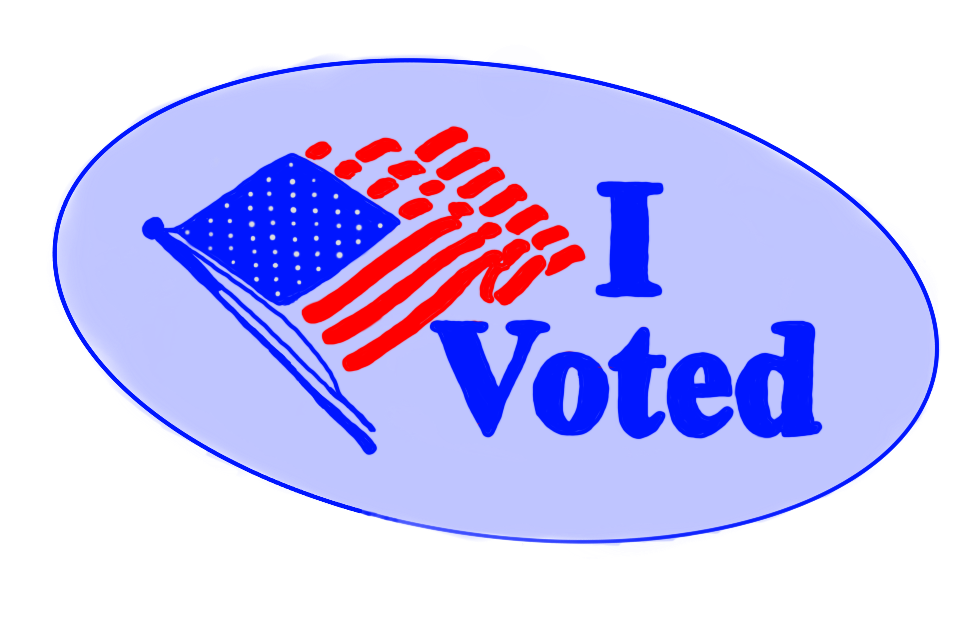With the 2024 presidential election coming in blazing hot, the United States political climate has become increasingly turbulent. People in the U.S. are living under stark sociopolitical divides, the driving topics and most fervent defenders of which are entirely unavoidable on a day-to-day basis.
These harsh divides have led many U.S. residents to lose faith in the U.S. electoral system and voting power as a whole, a common reason for such feelings being cited as systemic shortcomings in the election process. Many voters, especially younger generations, don’t feel like their vote matters.
It is undeniable that the U.S. electoral system is fundamentally flawed with institutions like the Electoral College and the general two-party system leaving U.S. residents unsatisfied with their country. However, even in this flawed system, the importance of individual voting power is not up for debate.
When someone who is eligible to vote actively chooses not to, they are considered an abstaining voter. One of the most common defenses for abstention voting stems from the organization of the U.S. election system itself: the Electoral College.
Through the Electoral College, the presidential elect in a given election is not chosen by popular citizen vote the way the term “democracy” would suggest, but rather by which party represents the majority of voters in a combination of specific states.
Because of this system, many people, especially in states that firmly affiliate themselves with a specific side of the political spectrum, feel that their vote doesn’t matter if they vote in a way that opposes the majority vote of their state. Many U.S. residents believe the only voting that matters in U.S. elections is in swing states like North Carolina, where the majority vote could go either way.
From a strictly presidential election perspective, this reasoning has merit. A vote for the minority party in a staunchly-affiliated state will not decide which party takes control of the executive branch in accordance with winner-take-all fashion.
The Electoral College makes it possible for a presidential candidate to take office without actually winning the majority vote of the country. This happened in two more elections, including the famously close 2000 presidential election between Al Gore and George W. Bush and the 2016 presidential election between Hillary Clinton and Donald Trump.
This dysfunctional system provides U.S. voters with a false illusion of political autonomy and fuels the misrepresentation of American values in the U.S. government. Under the Electoral College system, voting power is unequally distributed. The amount of voting power a U.S. citizen has depends on where they live, which completely opposes the fundamental equality principle the U.S. Constitution stands for. It’s all about democracy for the U.S. until it comes time to actually organize the government. In what world is it fair to have a national leader elected after losing the majority vote?
Despite this counterintuitive organization, showing up to the ballot box in November, even in states whose population overwhelmingly opposes one’s political opinion, matters much more than one might think. The November election is not only for choosing who will win the presidential office but also for smaller, state-oriented offices like the governor, lieutenant governor, state senators and representatives.
The president might have executive power, but these offices are much more consequential on a state-level and individual basis, and they’re more easily influenced by popular vote than the president. The candidates who represent each state are in charge of determining laws on issues like education access, firearm regulation, abortion and LGBTQ+ rights. In many ways, these offices have much more of an impact on individual rights than the executive-in-chief.
In true swing states like Pennsylvania, Georgia and North Carolina, there should be absolutely no question why individual votes matter. The term “swing-state” is used synonymously with “battleground state” for a reason. These are the states over which the election is determined, and even a tiny, almost insignificant-seeming margin in votes can mean victory for a party.
In 2008, Barack Obama defeated John McCain in North Carolina by approximately 14,000 votes out of the 4.3 million cast. In 2016, Trump took the state over Clinton by just a 3.6% voter margin and once again won the state over Joe Biden in 2020 by an even slimmer 1.3% lead. In swing states, every vote matters and there cannot be room for apathy when it comes to individual voting responsibility.
There are other reasons why people choose not to vote, though, even in states where citizens have a disproportionately large amount of voting power. Misrepresentation of U.S. values amidst party polarization has also been credited with perceived disillusionment of individual political power.
Extremism has been normalized in U.S. politics as a result of accelerated polarization. The dual-party system has restricted its millions of eligible U.S. voters to a false sense of political freedom. U.S. voters are forced to choose between two extreme groups who claim to represent a generalized set of opposing social and economic issues.
This rigidity of choice leaves little room for nuance, moderate reasoning and alternative ideas in U.S. politics, and it forces people to “choose the lesser of two evils” rather than using their supposed individual political autonomy to help build a government that properly represents majority values and interests.
A 2024 political poll by AP News discovered that nine in every 10 U.S. adults agree on fundamental American values. In a supposedly harshly divided nation, there’s a lot more ideological convergence than one might expect.
Because of these limited options, many people choose not to vote at all for fear of using their vote to inadvertently support something they don’t agree with. There is no one party that reasonably represents the whole of U.S. values, especially concerning progressive leftists who commonly report that the Democratic Party is still a right-leaning institution in the grand scheme of political ideologies.
The U.S. fervently defends the ideals of democracy while simultaneously disparaging the principles they stand for. In a system more aligned with true democracy, the traditional winner-take-all electoral system would be abandoned and state electoral votes would be proportional to state popular vote ratios, including third-party votes. Nebraska and Maine are the only two states that have adopted this system as of present.
This more democratic system would have vulnerability towards third-party votes, which some might see as a critique but would ultimately leave room in the electoral system for the voices of those unhappy with the two predominant U.S. political parties. A dismantled Electoral College would have more potential for a departure from the two-party system.
Even people who don’t wish to support either major party should still vote for third parties. A third-party vote, even under the current electoral system, is not a “throwaway” vote. While voting for a third party absolutely impacts the majority vote for the two major parties, third-party voting turnouts also help provide evidence for U.S. dissatisfaction.
Third parties only grow with support, and even though they stand no reasonable chance of winning the presidential election, grassroots third-party movements can be extremely influential in local elections.
The upcoming U.S. presidential election leaves a lot on the line in terms of the country’s future. Fundamental human rights have been called into question. Amid hatred-fueled online discourse, uncomfortable family dining room debates and agenda-driven campus political speakers, it’s easy to become overwhelmed and succumb to the temptation of abandoned political involvement by choosing not to vote.
Let it be clear, though, that choosing not to vote is in itself political involvement. It might very well be one of the most dangerous kinds.



